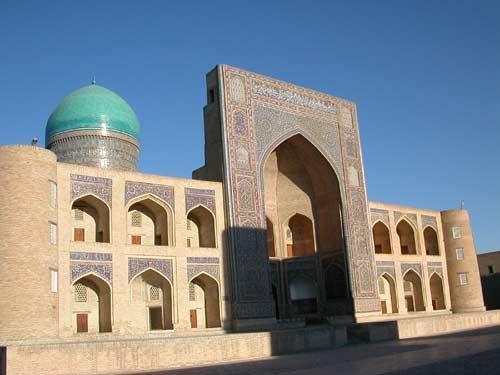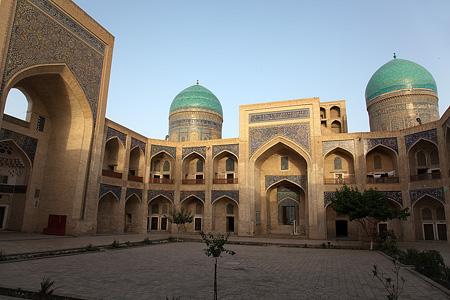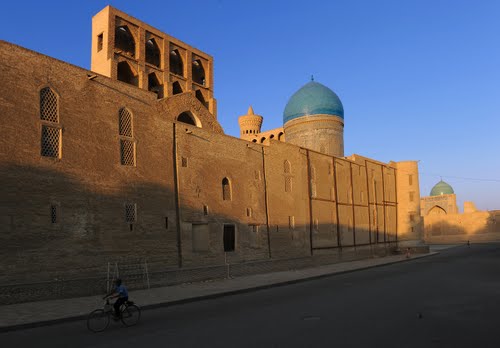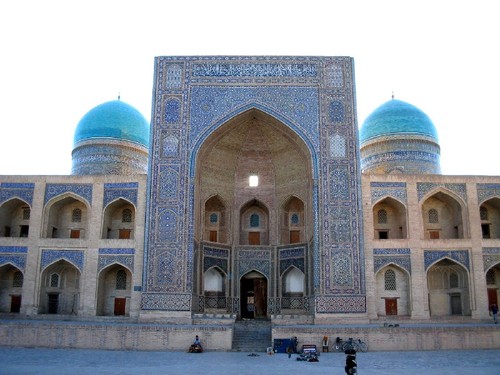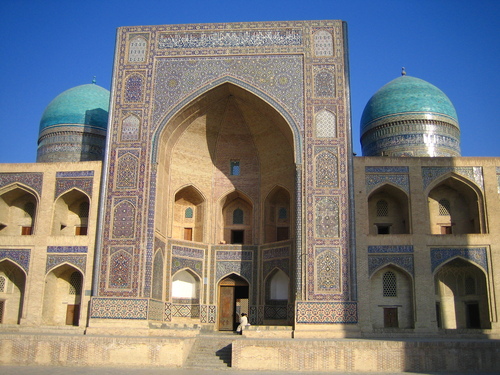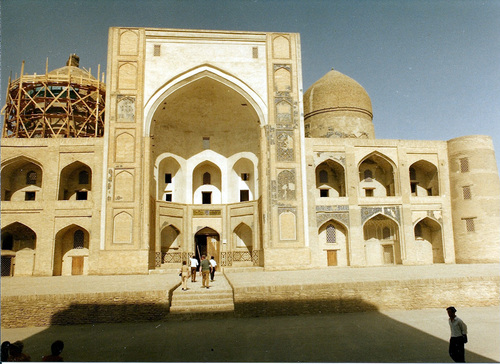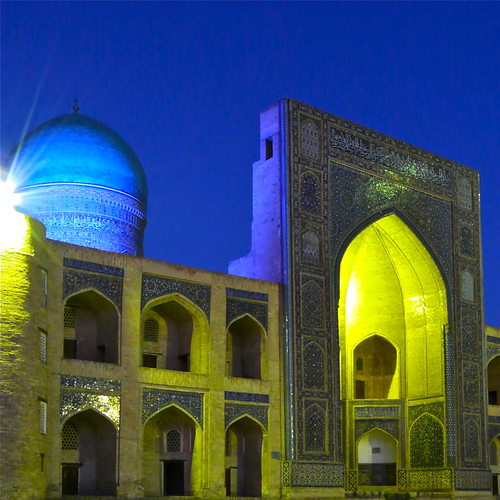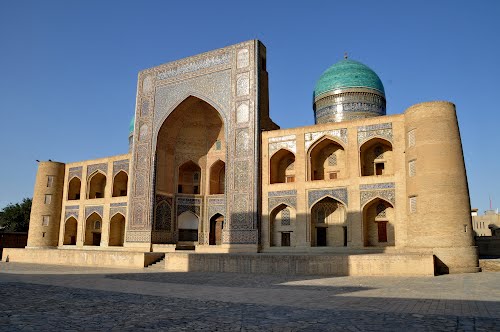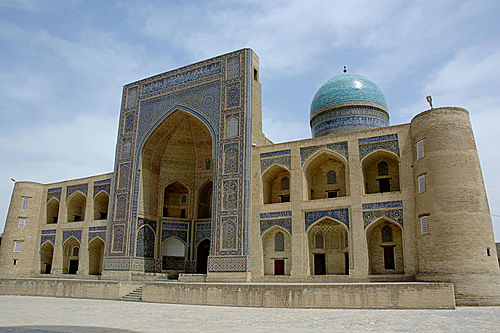The construction of Mir-i-Arab Madrasah is credited to Sheikh Abdullah Yamani of Yemen. Also called Mir-i-Arab, he was considered the spiritual mentor of Ubaidullah-khan and his son Abdul-Aziz-khan. Ubaidullah-khan waged a successful war against Iran. At least three times his troops seized Herat. Each plundering raid on Iran resulted in the capture of a great many captives. The money Ubaidullah-khan earned from selling three thousand Persian captives funded the construction of Mir-i-Arab Madrasah. Ubaidullah-khan was very religious. He had been nurtured in high respect for Islam in the spirit of Sifism. His father named him in honor of prominent sheikh of the 15-th century Ubaidullah al-Ahrar (1404-1490), by origin from Tashkent province.
By the 1630s, sovereigns no longer erected splendid mausoleums for themselves and for their relatives. Khans of Shaibanid dynasty were standard-bearers of Koran traditions. The significance of religion was so great that even such a famed khan as Ubaidullah was buried next to his mentor in his madrasah. In the middle of the vault in Mir-i-Arab, Madrasah is situated in the wooden tomb of Ubaidullah-khan. At his head is wrapped in the moulds his mentor - Mir-i-Arab. Muhammad Kasim, mudarris of the madrasah is also interred nearby.
The portal of Miri Arab Madrasah is situated on one axis with the portal of the Kalyan Mosque. However, because of some lowering of the square to the east, it was necessary to raise the edifice of the madrasah on a platform.

